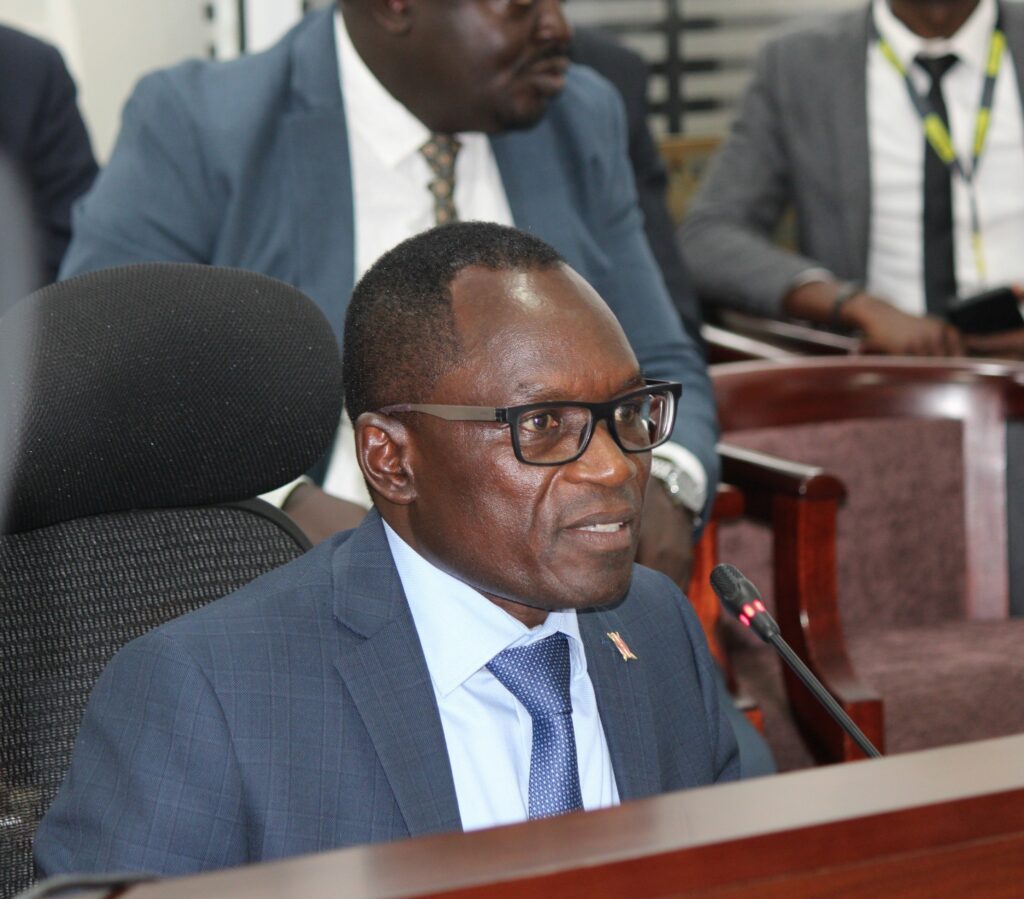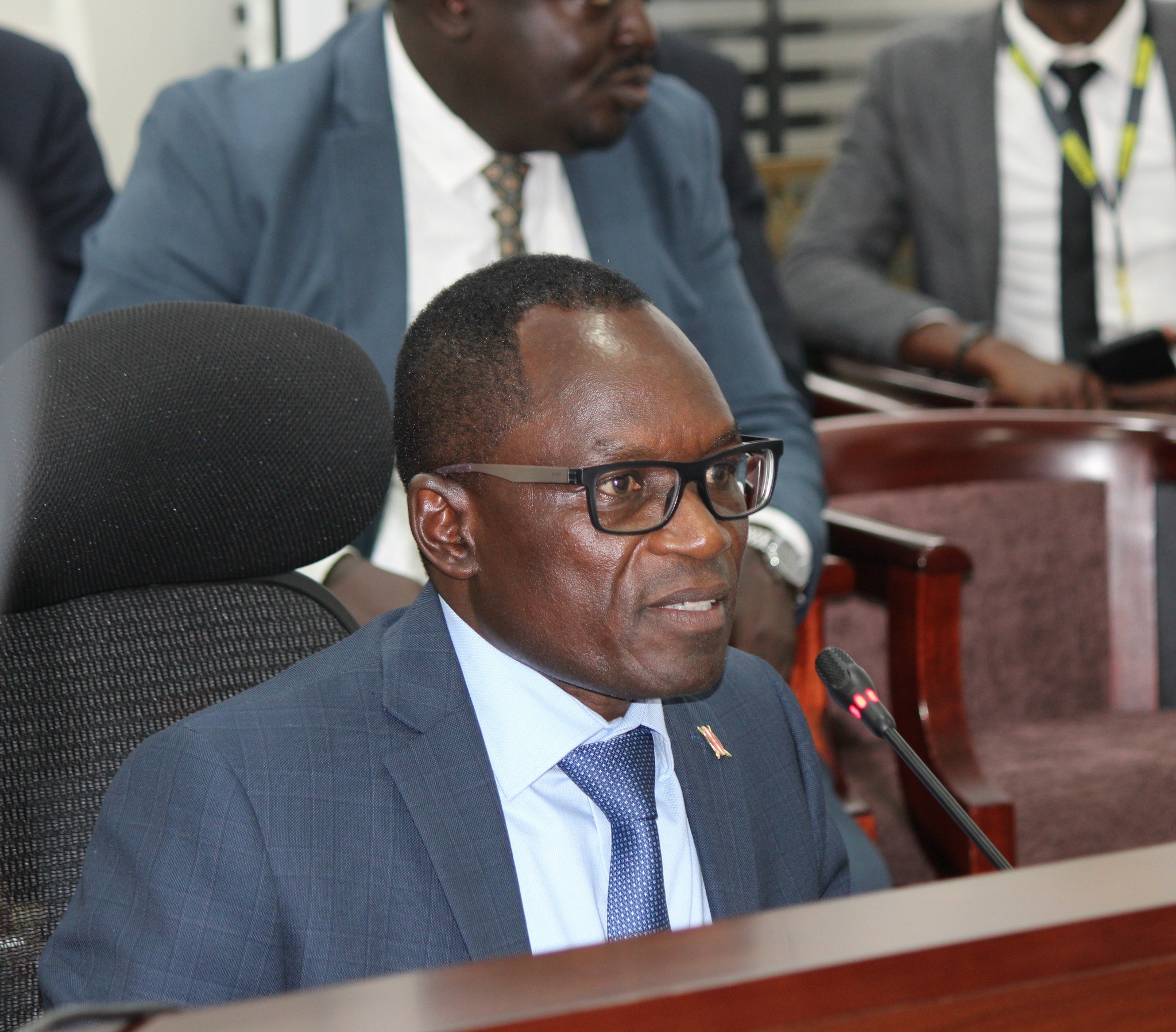
Members of the National Assembly Communication Information and Innovation Committee have put the nominee for the position of Principal Secretary for the State Department of Broadcasting and Telecommunication Services, Stephen Isaboke, through the paces during his approval hearing.
Mr. Isaboke, a seasoned business executive boasting over 25 years of leadership experience across diverse sectors including technology, media, oil and gas, and renewable energy, presented his credentials to the committee. His academic background includes an MBA from the University of Nairobi and a diploma in executive coaching from the UK.
Highlighting his career, Isaboke cited his role as Group Executive Director of Regulatory and Government Affairs for Multi-Choice Africa, where he navigated regulatory risks and secured operational licenses across 48 African nations. He also noted significant tenures at Shell and Unilever.
Hon. John Kiarie (Dagoretti South) pressed Isaboke on media freedom, outdated legislation, the state of the Kenya Broadcasting Corporation (KBC) and Telkom Kenya, and the growing threat of cybercrime.
Kiarie inquired about Mr. Isaboke’s direct involvement in shaping the broadcast regulatory environment.
“Our review of your documents indicates experience within the telecommunications industry, among other sectors,” Hon. Kiarie stated.
He added, “Have you at any point been involved in the development or implementation of any regulatory framework pertaining to the broadcast sector?”
Mr. Isaboke affirmed his extensive experience in influencing the sector. “I have been part of the team behind the digital transformation in Kenya’s telecommunication sector, a feat that saw me receive the Order of the Elder of the Burning Spear (EBS) from the President,” he informed the committee.
He added, “I was also part of the steering committee that participated in the last review of the Kenya Information and Communications Act, 1998. I worked with the previous committee of this house to ensure the licensing framework in the country was effective.”
Alfah Miruka (Bomachoge Chache) challenged the nominee on his vision for transforming the broadcasting and telecommunication sectors.
He asked, “If appointed, what interventions will you bring that will ensure that the media model that is operating, especially in our traditional media houses, is sustainable? What proposals in terms of regulation are there to ensure that all the platforms then adhere and there’s fairness in terms of regulation?”
Isaboke pledged to prioritize an overhaul of outdated laws, particularly the Kenya Information and Communications Act, 1998, which governs licensing and regulation of postal, information, and communication services.
Addressing the struggling state broadcaster, KBC, and Telkom Kenya, Isaboke outlined a reform-driven strategy.
“If appointed, I will champion a turnaround plan for entities such as the national broadcaster and Telkom.”
He added, “I will start with focusing on debt clearance by utilising the assets at hand to generate much-needed income, as well as forge public-private partnerships to boost sustainability.”
Legislators voiced the importance of media freedom while also raising concerns about emerging technological challenges like the misuse of artificial intelligence to spread misinformation.
Isaboke reassured the MPs of his commitment to upholding media freedom as enshrined in the Constitution. He acknowledged the need to address the potential for abuse of emerging technologies.
“It is important that we don’t allow any misunderstanding to exist when it comes to the freedoms of the media and other establishments, state or otherwise, Isaboke said.
He added, “On the matter of threats of misinformation, deepfakes, and digital abuse, the first intervention, Chair, is actually engagement, as gagging is not a tactic to be used in this day and age. We need to look at the Computer Misuse and Cybercrimes Act and enhance public sensitisation on the matter.”
Concerns were also raised regarding Mr. Isaboke’s association with Over-the-Top (OTT) subscription TV provider GoTv and its potential impact on KBC’s operations, with committee members highlighting a potential conflict of interest should he be appointed PS.
The nominee clarified that his involvement with GoTV was solely as a shareholder and that he had no operational control over the company. He assured the lawmakers that, if approved for the position, he would divest his shares in the entity.
The committee will now deliberate on Mr. Isaboke’s responses before submitting its recommendations to the National Assembly.
